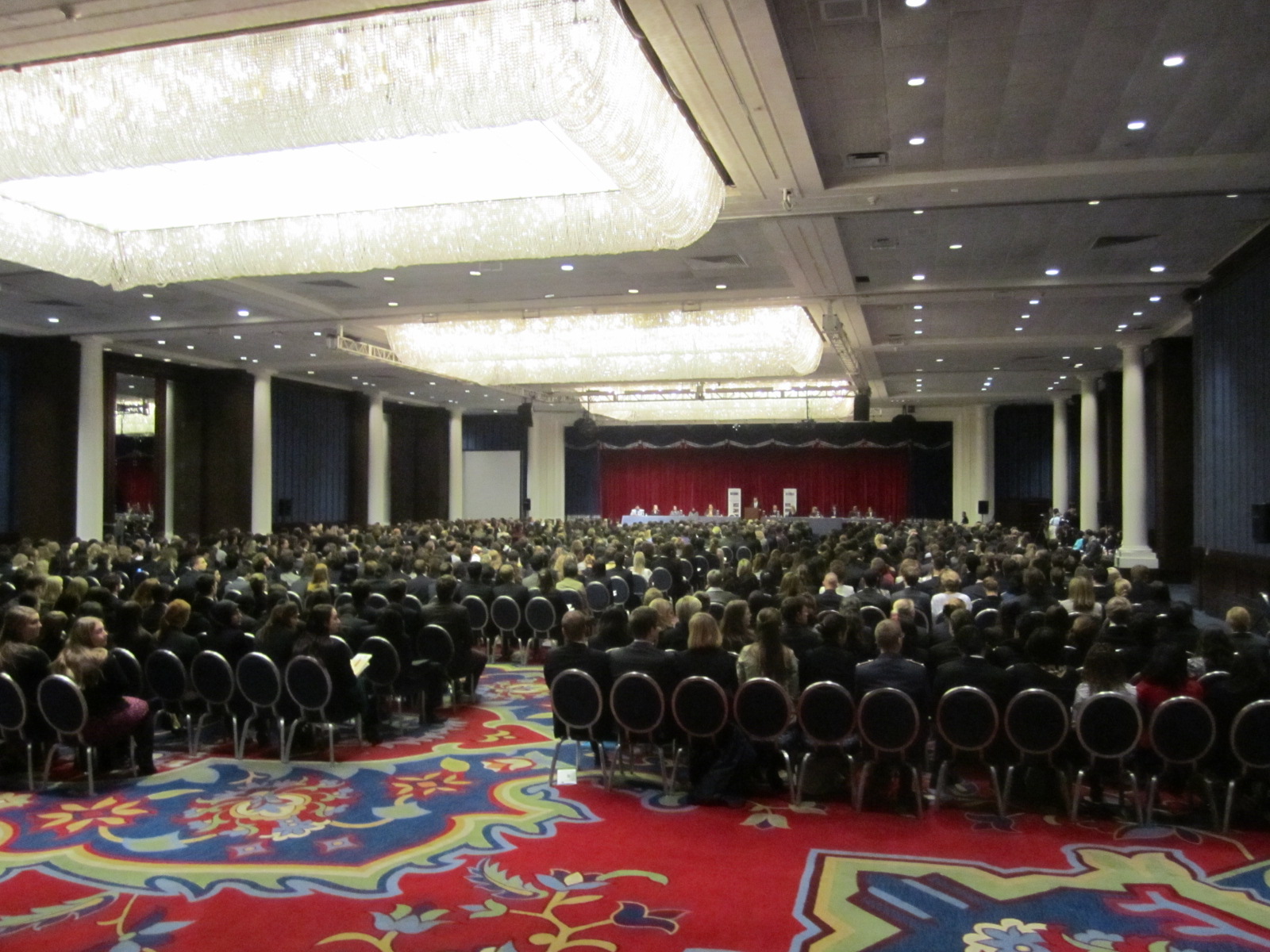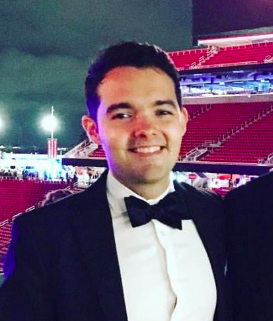Which college Model UN teams are the best on the circuit? There are many definitions of success in Model UN, and awards are not the purpose of Model UN. Nevertheless, awards have existed in Model UN for many years and serve to recognize individual students for their accomplishments in leadership, research, public speaking, resolution-building, negotiation, and diplomacy. These rankings recognize teams for their efforts in preparing more students to succeed at more conferences and build the skills necessary to win awards in Model UN, thereby improving Model UN for all of its participants.
The North American collegiate Model United Nations community is informally divided into two circuits, which we refer to as the National Division and the World Division.
- The National Division teams tend to be led by faculty advisors, focus on the academic and educational aspects of the conference, and attend about 2-3 organization-hosted conferences per year that give out many school awards but de-emphasize competition by usually not formally giving out individual awards from appointed chairs.
- The World Division teams tend to be led by college head delegates, focus on the competitive and social aspects of the conference, and attend about 5-6 college-hosted conferences per year (with a majority of them being crisis simulations) that give out many individual awards but only a few school awards. More details about both divisions can be found here.
Fall 2016 North American College Recognition: National Division
Notable fall conferences in the National Division include NMUN DC, AMUN, SRMUN, and NWMUN Seattle. Rankings are not within the values of the National Division conferences, and recognition of the delegation award winners is more appropriate. Please note that the conferences often give delegation awards by country (not by school), so some schools may receive multiple country delegation awards.
We will post the all the North American delegation awards for these conferences as they become available. Also, in line with their educational philosophy AMUN does not wish to emphasize awards, so we will not be posting their awards here.
NMUN DC
Outstanding Delegations:
California State University-Northridge
Florida Atlantic University
Hunter College-CUNY
Irvine Valley College (x2)
Pace University at Pleasantville
St. Petersburg College
University of Arkansas
University of New Haven
West Virginia University
Distinguished Delegations:
Clemson University Model United Nations
Florida Atlantic University
Hostos Community College-CUNY
Howard Payne University
Hunter College-CUNY
Manhattan College
Montgomery College (x2)
Syracuse University-Maxwell School
Texas Tech University
University of Maryland-Baltimore County
UNC Charlotte Model United Nations
University of North Carolina at Pembroke
University of South Florida
University of Texas at Dallas
Virginia Wesleyan College
West Virginia University (x3)
Honorable Mention Delegations:
Clemson University Model United Nations
Collin College
Florida Atlantic University
Georgia College & State University
LaGuardia Community College
Lee College
Louisiana State University International Relations Club
Methodist University
Pace University- New York City
Rock Valley College
Tennessee Technological University
University of Alberta Model United Nations
University of Arkansas
University of Maryland-Baltimore County
University of Northern Colorado
Weber State University
NWMUN Seattle
Outstanding Delegation:
California State University, Northridge
Distinguished Delegations:
California State University, Chico
United States Air Force Academy
Fall 2016 North American College Rankings: World Division
Methodology
The Weighted Score Methodology is the same as in previous years with minor modifications in weightings to reflect attendance this year. The article above also provides insight into the purpose and philosophy behind the rankings. Fall conferences were weighted in this order:
- UPMUNC
- NCSC & CMUNNY
- BarMUN & SCSY
- TrojanMUN
- SBIMUN
- UNCMUNC & CIAC
Weighting modifications: The difference between UPMUNC and NCSC/CMUNNY increased. BarMUN is now weighted slightly higher than SCSY. The difference between TrojanMUN and SBIMUN increased. The aforementioned changes are based on changes in the relative competitiveness of the conference compared to last year. UNCMUNC and CIAC are additions to the Fall rankings. DISCon did not submit data but could be incorporated into the final rankings if data is received.
It is important to note that we use aggregate weighted scoring while many conferences use a ratio in their scoring methodology. Please keep in mind these scoring differences as you read the following narratives- our rankings of for example “2nd Place” at a conference is in terms of total weighted awards, and may not match with the Outstanding Large Delegation at that conference.
It is also important to note that schools that host collegiate conferences in the fall were unable to compete at these conferences. However, most of the top teams will host collegiate conferences at some point this year, so the aggregate scoring opportunities will mostly balance out by the end of the year.
Best Delegate’s Editor of Training Content Richard Zhao helped lead this project and collect the awards data, and Best Delegate’s Kevin Felix Chan and Erik Leiden completed analysis of the data and editing of the narratives. Thank you also to the Secretaries-General of each of the conferences for their support of this project and for sharing their award lists.
Let’s meet our top 75 World Division Model UN teams for the Fall season.
1. University of Chicago
The University of Chicago has once again retained its position as the number one team on the circuit by placing first or second in terms of weighted score at the three most competitive conferences of the semester. UChicago won the Outstanding Large Delegation award at UPMUNC, where it finished second in terms of weighted score. Although the team did not win a delegation award at NCSC, the team actually tied Best Large winner UPenn for the highest weighted score there and probably lost the large delegation awards to UPenn and FIU by ratio. Last but not least, the team received the Outstanding Large Delegation award at CMUNNY, where it finished first in terms of weighted score and also probably lost by ratio to Best Large winner UPenn. While UChicago did not win a Best Large Delegation award this semester, the team had the second most individual awards on the circuit and it still ranked #1 overall in terms of weighted score. That said, this is probably the most tenuous #1 ranking it has been in, and the team will need a strong performance at HNMUN to retain the top year-end ranking for the fourth year in a row. The University of Chicago will be hosting ChoMUN during the Spring semester.

2. Florida International University
FIU has achieved its highest ranking ever by competing at all four of the most competitive conferences this semester and winning a delegation award at every one. The four delegation awards are the most of any team on the circuit this semester. The team won the Best Small Delegation award three times at UPMUNC, CMUNNY, and BarMUN. The team also competed as a large delegation at NCSC and won the Outstanding Large Delegation award there. One of FIU’s competitive strengths is its optimized team as its small delegation achieves weighted scores at a similar level as the large delegation award winners. For example, the team was actually #1 at BarMUN in terms of weighted score. If any Ivy League ceiling ever existed, FIU would have smashed it by now because the team is now ranked above every Ivy League team. Now, the only team it has ever yet to rank ahead is UChicago, the #1 team for the past three years. FIU will get their head-to-head chance against UChicago at HNMUN, though it will also need to fend off Yale — which snapped FIU’s two-year Outstanding Large Delegation award streak at HNMUN last year — and a renewed UPenn team there first before it could be ranked any higher.

3. Harvard University
Harvard’s travel team, ICMUN, put in another strong performance during this Fall semester to obtain the number three spot. The highlight of its semester was winning the Best Large Delegation award at SCSY, where it topped Ivy League competitors Princeton and Penn. This was a conference that the team had not attended since 2013, so a return to rival Yale’s campus instead of staying at home for BarMUN proved to be fruitful for the team. Harvard also contended for a large delegation award at UPMUNC and NCSC, where it finished fourth in terms of weighted score at both conferences. Last but not least, it placed among the top ten at CMUNNY. Despite only receiving one delegation award, Harvard placed third in the rankings based on its strength of having the most individual awards of any team on the circuit this semester. Next semester, Harvard will host HNMUN in Boston, WorldMUN in Montreal, and HNMUN Latin America in Lima, Peru.

4. Georgetown University
The Georgetown team traveled to three conferences this semester and improved in each one. The team started the semester with a top ten performance in terms of weighted score at CMUNNY. Next, the team improved to win the Outstanding Large Delegation award at BarMUN, where it finished behind only Best Large winner Vanderbilt and Best Small winner FIU. It then hosted NCSC, one of the most competitive conferences in the Fall. Georgetown ended its Fall semester strong by winning the Best Large Delegation award at UPMUNC, the most competitive conference of the semester, for the second year in a row. Similar to last year, the UPMUNC victory could give Georgetown a decent case to claim that it is a better team than UChicago, FIU, and Harvard when it comes to head-to-head competition. The team dropped from #3 to #4 in terms of Fall ranking compared to last year primarily because it did not do as well at BarMUN (it won Best Large there last year). But overall, the team is winning at a very similar level to last year. And since it already hosted NCSC, the team should have a legitimate chance to contend for the #1 rank by the end of the year.

5. University of Pennsylvania
The University of Pennsylvania has triumphantly returned to the top five of the rankings. Intercol, as the team is known, could make a decent though not solid case that it should be the #1 ranked team on the circuit. The team won the Best Large Delegation award at NCSC and CMUNNY, the two most competitive conferences that it could compete in this semester since they hosted UPMUNC, and beat UChicago twice for that honor (though they would be 1-1 in terms of weighted score as UChicago lost by ratio at CMUNNY). The team also won an Outstanding Large Delegation award at SCSY. Its relative anomaly performance was at BarMUN, where it placed in the top ten in terms of weighted score. The main reason it was not ranked higher was that it could not compete at its own conference this semester, but aggregate scoring opportunities should balance out by the end of the year. That will start with HNMUN, where the team will have a chance to prove itself against #1 UChicago and #2 FIU (and catch up in scoring with #3 Harvard). Regardless, the past two years of being ranked in the teens feels like history already, and the fact that it sent a team of almost all underclassmen to win Best Large at NCSC should be a scary thought for the rest of the circuit — this top-five team intends to stay there.

6. The George Washington University
GW’s team is tied for its highest rank ever with one of its strongest Fall semester performances to date. The team attend all four of the most competitive conferences and although it did not win any delegation awards it was consistently successful at all of them. The team contended for delegation awards at NCSC and BarMUN as it finished in the top five at both conferences, placed right outside the top five at CMUNNY, and was right outside the top ten at UPMUNC. The team did not win a delegation award last Fall either but finished in the top ten of the final rankings. With similarly consistent performances in the spring semester, this GW team could achieve something similar this year — or even try to break into unprecedented top five territory.
7. American University
American University is one of the most improved teams on the circuit this year as the team put on a strong performance to soar into the top ten of the rankings — its highest rank ever. American finished sixth overall in terms of weighted score at both UPMUNC and NCSC, the two most competitive conferences of the Fall semester. Essentially, the only teams that finished above them at those conferences are the teams ranked above them this Fall. And American took home its first delegation award ever, an Outstanding Small Delegation at BarMUN. The team has invested in breakthrough training and smooth leadership transition over the past two years and may continue to rise. Georgetown, George Washington, and American are all neighbors in DC; they are neighbors in the top ten of the college Model UN rankings now, too.
8. New York University
NYU’s team took on another busy Fall season competing at four conferences. The team matched its performances at SCSY and NCSC from last year by once again winning the Outstanding Small Delegation award at both conferences. Both awards were won with optimized ratios. Also similar to last year, the team contended for a large delegation award at crosstown CMUNNY, where it finished third behind the two delegation award winners, UPenn and UChicago. And the team put in another top ten performance at UPMUNC to round out their busy semester. The primary reason for a slightly lower rank compared to last Fall is that the team did not attend BarMUN this year (whereas it took home Best Small there last year), so their aggregate score is lower. But on a per-conference basis, the team is essentially a mirror of its competitive self from last year, so it should challenge for a top-five ranking by the end of the year. NYU will be hosting NYUMUNC during the Spring semester.
9. Yale University
Yale hosted SCSY during the Fall semester and only traveled to one conference during the Fall, and is the highest team to be ranked for attending only one conference. MUNTY, as the Yale team is called, put in an extremely strong performance at UPMUNC and contended for a delegation award there. The team finished third in terms of weighted score behind only Best Large Delegation award winner Georgetown and Outstanding Large Delegation award winner UChicago. Yale will continue its Ivy League schedule and large conference specialization when it heads to HNMUN in the spring semester, where it will try to defeat UChicago and retain its large delegation award against surging competition from FIU and UPenn.
10. United States Military Academy at West Point
West Point won a pair of delegation awards this Fall semester, which matched its strong performance from last Fall when the team also received a pair of delegation awards to rank #10. West Point’s success this year came from winning Best Small Delegation at NCSC and Outstanding Small Delegation at CMUNNY. The team actually finished better than Best Small winner FIU in terms of weighted score at CMUNNY, but probably lost by ratio. Furthermore, West Point contended for another delegation award at SCSY, a conference that it traditionally does well in, with a top five performance there. Lastly, the team also got on the scoreboard at UPMUNC. West Point will be hosting WPMUNI in the spring.
11. Princeton University
Princeton shot up in the rankings this Fall by delivering quality instead of just quantity of awards, and the team has achieved its highest ranking ever. The team continued to build on its success at SCSY last year when it barely missed out on a delegation award by taking home the Best Small Delegation award this time and placing second overall in terms of weighted score (behind only Best Large winner Harvard and ahead of Outstanding Large winner UPenn). It also displayed improved performances at CMUNNY and UPMUNC to round out its Ivy League schedule for the Fall semester. Princeton will host PICSim in the spring semester.
12. Claremont McKenna College
Claremont McKenna is the highest ranked West Coast team to be ranked this Fall by crushing the West Coast competition at TrojanMUN. Although it tied UCLA for the number of gavels, Claremont McKenna had much more depth than any West Coast team as it took home 21 awards — about double what an average Best Large Delegation award-winning team on the circuit would take home. In addition to winning Best Large at TrojanMUN, the team also put on a strong performance at UPMUNC to show that it can keep up with the rest of the circuit. The team finished twelfth overall at UPMUNC and happened to also be ranked twelfth overall this Fall.
13. University of Virginia
The University of Virginia has a lot of momentum behind the team and has achieved its highest ranking to date. UVA consistently finished in the top ten in terms of weighted score at three crisis conferences: CMUNNY, BarMUN, and NCSC. It also took home a handful of awards at UPMUNC to round out a successful Fall semester. UVA reached this rank without even attending UNCMUNC, a conference where they won a delegation award in last year, perhaps signaling that the team is ready for a more competitive schedule. Virginia will host VICS this spring.
14. University of California, Berkeley
UC Berkeley placed outside the top ten of the rankings for the first time in a few years due to its inconsistent performance in the Fall. On the positive side, the team put in a top ten performance at UPMUNC to show that it can compete against the best on the circuit. But the team only won a few awards at CMUNNY and placed behind Claremont McKenna and UCLA at TrojanMUN. Berkeley isn’t afraid to travel though, so it will have chances to reclaim a top ten spot in the spring. UC Berkeley will host UCBMUN next semester.
15. Michigan State University
Michigan State built on last year’s success to put on a strong Fall run that enabled the team to enter into the top 15 of the rankings. Although it did not win a delegation award like it did last Fall, the team was more consistent this year and put in top ten performances in terms of weighted score at both BarMUN and UPMUNC. The team has potential to rise further as it usually sends its largest delegations to McMUN and ChoMUN during the spring semester.
16. Vanderbilt University
Vanderbilt has been rising in the rankings during the previous years and has put in another strong Fall performance. Vanderbilt continued its strategy of winning big at the smaller conferences this Fall, and its biggest win was taking home the Best Large Delegation award at BarMUN where it beat Outstanding Large winner Georgetown. The team also put in a top five performance at CMUNNY to contend for a large delegation award there. The team did trade SCSY for the geographically closer UNCMUNC, which moved its dates to the Fall, and dominated that small conference to win the Best Large Delegation award there as well. Vanderbilt is the highest ranked team that did not attend UPMUNC.
17. Boston University
BU started the season by hosting the largest and most competitive BarMUN conference to date. It started its competitive season by receiving just one award at NCSC. However, it put in a top ten performance at UPMUNC to win the Outstanding Small Delegation award. This bumped BU back into the top 20 and already matched last season’s win of one small delegation award, so the team has potential to rise up even further.
18. University of California, Los Angeles
UCLA only competed on the West Coast this semester. UCLA dominated SBIMUN, which did not feature any other top-25 teams this year. UCLA received the Best Small Delegation at SBIMUN, but their weighted score was actually more than three times that of Best Large winner USC. The team also won the second most awards at TrojanMUN and tied Claremont McKenna in the number of gavels won. The team nearly maxed out the ranking possibility for not going to the East Coast, but it will have to travel in order to stay ranked in the Spring. UCLA will host LAMUN this spring semester.
19. University of Miami
The U is winning consistently as it won awards in six committees at both CMUNNY and UPMUNC. Although it is a strong start, it produced a lower rank compared against last Fall’s success of winning Best Small at UPMUNC and winning at three conferences instead of two. Miami also won Best Small at HNMUN last year, so the team will have several opportunities to improve in the Spring.
20. Emory University
Emory attended a pair of Ivy League conferences and came away with enough awards to place in the top 20 of the Fall rankings. The team won multiple awards at SCSY and UPMUNC, showing its ability to win in both GA and crisis conferences. Emory will host their fifth edition of MUNE this Spring.
21. Florida State University
The FSU World Affairs Program put in top 10 performances at BarMUN and NCSC during the Fall to remain in the Top 25. FSU WAP won several delegation awards last spring semester and doing so again this Spring would likely help the team maintain a spot in the Top 25. FSU WAP hosted the Regional Training Conference in the Fall.
22. The College of William & Mary
William & Mary, a regular top-25 team, has quickly ascended back into the Top 25 rankings after a quick dip into the top 50 at the end of last year. This is thanks to consistently taking home awards from SCSY, CMUNNY, and NCSC. William & Mary will be hosting &MUN in the Spring.
23. Boston College
Boston College put in a solid Fall performance to move back into the Top 25. The team curiously chose to travel to SCSY instead of staying at home for BarMUN, but the strategy paid off — the team tied for the second most gavels at SCSY. Boston College also got on the scoreboard at UPMUNC to round out their Fall season.
24. University of Central Florida
UCF broke into the Top 25 for the first time after steadily climbing the ranks over the past few years. The team was able to take home awards at both the smaller, crisis-oriented BarMUN as well as the larger, GA-oriented UPMUNC. UCF tied Florida State in weighted score at BarMUN and is not far behind the rankings from Miami and FSU — could this be the beginning of a power shift in the state of Florida?
25. McGill University
McGill is again the top Canadian team in the rankings. McGill won awards at BarMUN, CMUNNY, and NCSC to make it into the Top 25. Its best finish was at NCSC, where it placed among the top ten teams in terms of weighted score. McGill did not attend UPMUNC as it conflicted with its high school conference as usual. McGill will host McMUN to kick off the spring semester.
Top 50 Outstanding Delegations (Alphabetical Order)
The five teams closest to breaking into the Top 25 were: Rutgers, Case Western, Clark, USC, and Columbia.
Case Western Reserve University
Clark University
College of the Canyons
Columbia University
Elon University
Georgia Institute of Technology
Ithaca College
Mount Holyoke College
Northeastern University
The Ohio State University
Old Dominion University
Pomona College
Rutgers University
Seton Hall University
State University of New York at Geneseo
Temple University
University of California, Davis
University of California, San Diego
University of Florida
University of Illinois, Urbana-Champaign
University of LaVerne
University of Nevada, Las Vegas
University of North Carolina at Chapel Hill
University of Pittsburgh
University of Southern California
Top 75 Honorable Mention Delegations (Alphabetical Order)
Amherst College
Brown University
Cornell University
Davidson College
Fordham University
Middle Tennessee State University
Middlebury College
Northern Arizona University
Northwestern University
Pennsylvania State University
Queen’s University
Soka University
Stanford University
Tufts University
University of California, Merced
University of Cincinnati
University of Delaware
University of Michigan
University of North Carolina, Wilmington
University of Southern Maine
University of Tampa
University of Toronto
Washington University in St. Louis
Wellesley College
Congratulations to all the teams! Enjoy your winter break and see you back on the circuit next semester!




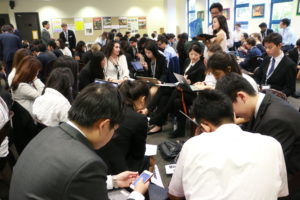 With THIMUN Hague and THIMUN Qatar just around the corner, this article will discuss one, if not the most, important part of the THIMUN experience– lobbying! Over the course of one week, delegates will have the opportunity to discuss global issues with other delegates in the committee room. Lobbying takes place during the first part of a THIMUN or THIMUN-affiliated conference, and the length depends on the length of the conference. Besides the actual debate on these issues, roughly half of the conference is dedicated to open discussion on these issues. On the first day, shortly after opening speeches, lobbying commences. During lobbying, delegates are split up into groups which are usually dictated by the committee topics. Delegates split into these groups based on their country/organization involvement on the issues, or which topic they have researched most heavily. If delegates are heavily involved or has heavily researched into more than one topic, there is freedom for delegates to walk around the room and switch over to groups throughout lobbying session. In these groups, the main goal is to draft a resolution to be debated during the conference. All topics are debated, and therefore at least one resolution should be produced for each topic (this is subject to change based on how many committee topics there are, or how much time is allocated per issue/per resolution).
With THIMUN Hague and THIMUN Qatar just around the corner, this article will discuss one, if not the most, important part of the THIMUN experience– lobbying! Over the course of one week, delegates will have the opportunity to discuss global issues with other delegates in the committee room. Lobbying takes place during the first part of a THIMUN or THIMUN-affiliated conference, and the length depends on the length of the conference. Besides the actual debate on these issues, roughly half of the conference is dedicated to open discussion on these issues. On the first day, shortly after opening speeches, lobbying commences. During lobbying, delegates are split up into groups which are usually dictated by the committee topics. Delegates split into these groups based on their country/organization involvement on the issues, or which topic they have researched most heavily. If delegates are heavily involved or has heavily researched into more than one topic, there is freedom for delegates to walk around the room and switch over to groups throughout lobbying session. In these groups, the main goal is to draft a resolution to be debated during the conference. All topics are debated, and therefore at least one resolution should be produced for each topic (this is subject to change based on how many committee topics there are, or how much time is allocated per issue/per resolution). 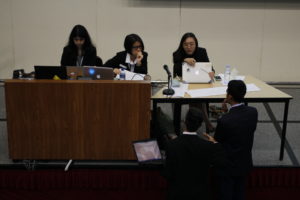 very committee Chair writes a research report for a respective topic. Therefore, there is a Chair in every committee that specialize in a topic being discussed. It is the role of the Chair to mediate lobbying sessions and keep delegates on track by pushing them in the right direction towards discussing solutions for the main sub-issues of the topic. The chair is expected to be heavily involved during the lobbying process, as the success of lobbying correlates with the success of debate. Besides fact-checking and ensuring lobbying is running smoothly, chairs also have the responsibility to ensure that all procedural questions and resolution formatting is on par with the expectations of the THIMUN Foundation.
very committee Chair writes a research report for a respective topic. Therefore, there is a Chair in every committee that specialize in a topic being discussed. It is the role of the Chair to mediate lobbying sessions and keep delegates on track by pushing them in the right direction towards discussing solutions for the main sub-issues of the topic. The chair is expected to be heavily involved during the lobbying process, as the success of lobbying correlates with the success of debate. Besides fact-checking and ensuring lobbying is running smoothly, chairs also have the responsibility to ensure that all procedural questions and resolution formatting is on par with the expectations of the THIMUN Foundation. 
 1. Anything to help them stand out in committee: We’re talking colored pens, colored notepads, colored binders, colored post-it notes. Basically anything that differentiate your delegate from the rest of the crowd. After a certain amount of directives, working papers, or notes, chairs and other delegates will begin to notice your paper or pen color and will define you by it. This can be extremely beneficial as everyone will notice how much you are doing in committee because of it.
1. Anything to help them stand out in committee: We’re talking colored pens, colored notepads, colored binders, colored post-it notes. Basically anything that differentiate your delegate from the rest of the crowd. After a certain amount of directives, working papers, or notes, chairs and other delegates will begin to notice your paper or pen color and will define you by it. This can be extremely beneficial as everyone will notice how much you are doing in committee because of it. 2. Western Business Attire: Because who doesn’t like to look good? A new suit or article of clothing is sure to boost your delegate’s confidence. You can find some great deals on Western Business Attire at stores such as J. Crew, Banana Republic, Men’s Wearhouse, and Express. If you don’t know their exact size or style then a gift card would definitely suffice.
2. Western Business Attire: Because who doesn’t like to look good? A new suit or article of clothing is sure to boost your delegate’s confidence. You can find some great deals on Western Business Attire at stores such as J. Crew, Banana Republic, Men’s Wearhouse, and Express. If you don’t know their exact size or style then a gift card would definitely suffice. 3. Tie bars, Pocket Squares, Cuff Links: Though they may be small, simple accessories like these can really make a male delegates outfit pop and make them stand out into their fellow delegates or the chair.
3. Tie bars, Pocket Squares, Cuff Links: Though they may be small, simple accessories like these can really make a male delegates outfit pop and make them stand out into their fellow delegates or the chair. 4. Statement Ties: These colorful ties are sure to brighten up any outfit. Country flag themed ties are always a good idea, but any vibrant pattern is a safe bet. (Recommended by Sam Povey)
4. Statement Ties: These colorful ties are sure to brighten up any outfit. Country flag themed ties are always a good idea, but any vibrant pattern is a safe bet. (Recommended by Sam Povey) 5. UN Lapel Pins: Because they look cool on any sports coat and instantly make you look better than the other delegates. (Recommended by Pinar Sezgin)
5. UN Lapel Pins: Because they look cool on any sports coat and instantly make you look better than the other delegates. (Recommended by Pinar Sezgin) 6. Anything with a UN Flag on it: Of course as Model UN enthusiasts we have to rep the UN, and anything with the UN flag on it is sure to make a great gift. You can find almost anything with a
6. Anything with a UN Flag on it: Of course as Model UN enthusiasts we have to rep the UN, and anything with the UN flag on it is sure to make a great gift. You can find almost anything with a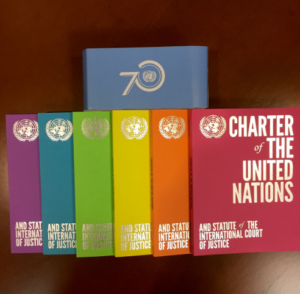 8. Various Colors of the UN Charter: As delegates we have all probably obtained a few UN Charters from conferences, but why stop at only a few colors when you could have the whole rainbow? The information may not change, but it is a cool novelty gift for the delegate in your life.
8. Various Colors of the UN Charter: As delegates we have all probably obtained a few UN Charters from conferences, but why stop at only a few colors when you could have the whole rainbow? The information may not change, but it is a cool novelty gift for the delegate in your life. 9. Gavel Stress Toy or an Actual Gavel: Gavels are usually an esteemed award for winning Best Delegate, but they can also be used to show appreciation. Because of its stature gavels can be a good way to show an advisor or mentor how much you appreciate what they have done for you while also keeping a MUN theme. It doesn’t have to be a real gavel, for you can also find gavel stress toys on Amazon if you want a more light-hearted gift.
9. Gavel Stress Toy or an Actual Gavel: Gavels are usually an esteemed award for winning Best Delegate, but they can also be used to show appreciation. Because of its stature gavels can be a good way to show an advisor or mentor how much you appreciate what they have done for you while also keeping a MUN theme. It doesn’t have to be a real gavel, for you can also find gavel stress toys on Amazon if you want a more light-hearted gift. 10. To-go Coffee Cups: For those early morning committee sessions when the only thing keeping you going is caffeine. To-go Coffee cups are also much more manageable than a flimsy Starbucks cup when rushing to committee at 8 in the morning. (Recommended by Caroline Bello)
10. To-go Coffee Cups: For those early morning committee sessions when the only thing keeping you going is caffeine. To-go Coffee cups are also much more manageable than a flimsy Starbucks cup when rushing to committee at 8 in the morning. (Recommended by Caroline Bello) 11. Index Card Cases: Aside from looking cool, these things are sure to keep your crisis notes more organized while in committee. Instead of having to stuff all your notes into a binder or briefcase after committee, you can shove them in one of these and be all good to go. You can buy it
11. Index Card Cases: Aside from looking cool, these things are sure to keep your crisis notes more organized while in committee. Instead of having to stuff all your notes into a binder or briefcase after committee, you can shove them in one of these and be all good to go. You can buy it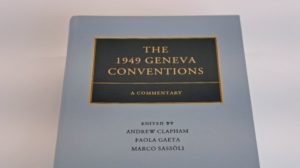 13. Pocket Version of The Geneva Conventions: Because you never know when you’re going to have to school somebody on humanitarian issues in committee. (Recommended by Caroline Bello)
13. Pocket Version of The Geneva Conventions: Because you never know when you’re going to have to school somebody on humanitarian issues in committee. (Recommended by Caroline Bello) 15. The Model United Nations Institute: The
15. The Model United Nations Institute: The 



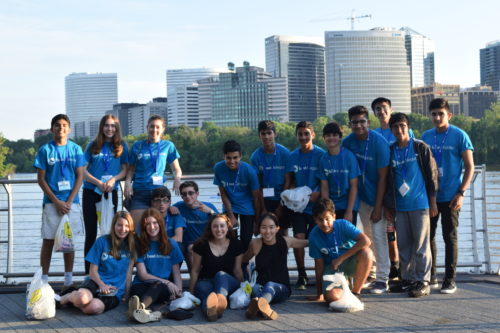
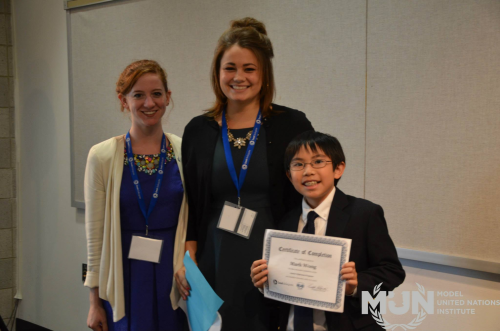
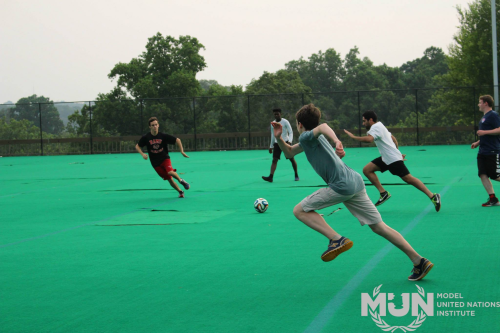
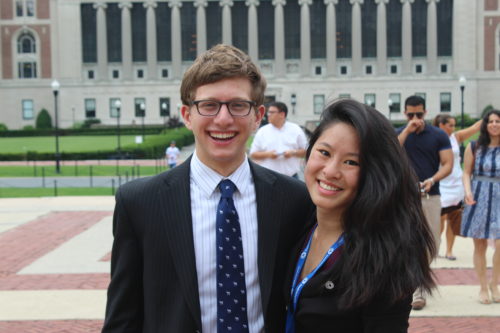
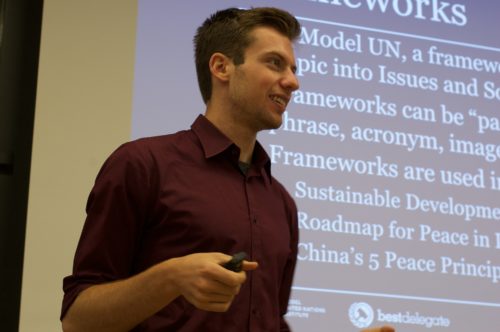
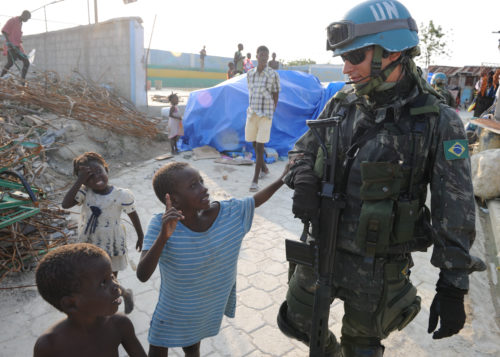








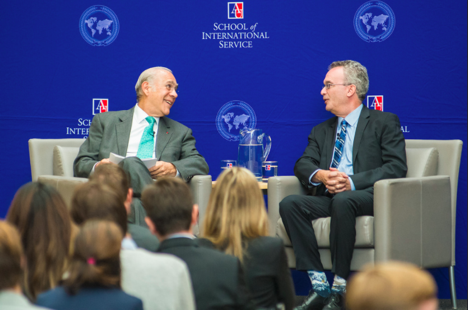
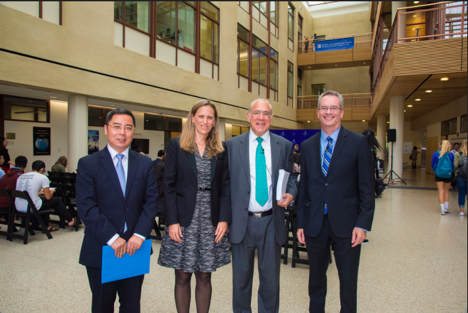
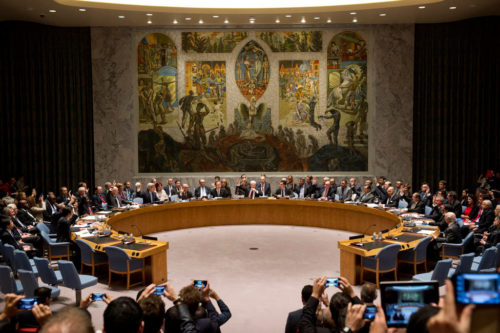


 There’s only one week left to apply to staff MUNI this summer as part of the Diplomacy Fellowship, or as a Residential Counselor or English Exchange Fellow. The
There’s only one week left to apply to staff MUNI this summer as part of the Diplomacy Fellowship, or as a Residential Counselor or English Exchange Fellow. The 

